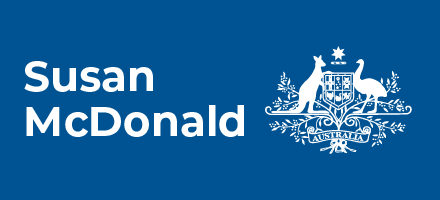DAIRY POLICY: FUNDING, HISTORY & WHY WE DON’T SUPPORT A FLOOR PRICE
The Australian Government is taking credible action to support dairy farmers.
We have implemented the mandatory Dairy Code of Conduct to improve the bargaining power of farmers in contracts with processors and we are delivering $22 million worth of measures to complement the code and support dairy farmers with unseasonably high input costs.
The government is also supporting dairy farming families through difficult times via the following measures:
* As at 3 January 2020 nearly 1,200 dairy farmers and their partners were on Farm Household Allowance (FHA) payment.
* Since the Murray-Goulburn and Fonterra crisis in 2016, $201 million in Dairy Recovery Concessional Loans have been approved, benefitting 347 farm businesses (as at 30 June 2019).
* The government supplements the approximately $30 million a year Australian dairy farmers pay in levies to Dairy Australia, contributing more than $20 million in 2018-19 to support research and development activities for a more productive, profitable and sustainable dairy industry.
The government is also supporting our dairy exporters with an active deregulation agenda and through supporting the dairy industry to get the most out of our free trade agreements.
Last year, Agriculture Minister David Littleproud put the retailers under pressure and they stopped selling $1 a litre milk. Supermarkets’ private label fresh milk was increased by 20 cents a litre.
Unfortunately not everyone passed the increase through to dairy farmers but the ACCC has worked to ensure the money goes to dairy farmers as was promised to consumers at the point of sale.
The Australian Government has been calling on the supermarkets to ensure that dairy products across the dairy cabinet are fairly priced, so that our dairy farmers are able to ensure their longer-term sustainability and Australians for generations to come can enjoy Australian dairy products.
MANDATORY DAIRY CODE OF CONDUCT
The Dairy Code has introduced clear laws about how farmers and processors are to conduct their business relationship.
The Code allows farmers to know the minimum price they will get for their milk over the life of their contract. This helps farmers to manage their business with confidence.
The code came into effect on 1 January 2020, six months earlier than planned for in the 2019 election.
All milk supply contracts entered into or varied since 1 January this year must be compliant with the code.
All contracts must be code compliant by 1 January 2021.
The code reflects strong engagement with dairy farmer organisations and dairy farmers from across all eight dairying regions and as a result, the final code delivers for dairy farmers, no matter where they are in Australia.
The code was a key recommendation from the 2018 ACCC Dairy Inquiry which found contracting and industry practices were weighted heavily in favour of processors.
The code helps protect farmers against egregious conduct by processors, improve transparency in the industry, and set enforceable minimum standards of conduct for business practices between farmers and processors.
The code:
* introduces transparency into the farm gate minimum pricing that farmers can expect for their milk.
* Provides a clear base from which our dairy farmers can make strong businesses decisions, based on a professionalisation of the relationship with their processor.
* Bans egregious business behaviours so dairy farmers can be treated fairly.
* Provides dairy farmers with support in a mandated dispute resolution process to work through any problems that come up in the contract.
This is not the silver bullet for the industry – our government has long recognised that, but it’s a great step in the right direction.
In line with feedback received from dairy farmers during drafting, the Code prohibits retrospective pricing step downs. It also prevents unilateral changes except in a narrowly defined set of emergency circumstances.
It stops processors withholding loyalty payments from farmers who are changing processor, and it prohibits exclusive supply arrangements where the conditions would be to the detriment of dairy farmers.
The Code also establishes a dispute resolution process and introduces civil penalties. The Australian Competition and Consumer Commission (ACCC) is responsible for enforcement of the Code.
BROADER ASSISTANCE
Dairy farmers face challenging times with high costs of inputs such as grain due to the effects of drought and electricity prices, and an increase of $150 a tonne on molasses.
The Australian Government is delivering a suite of measures to complement the Code and to assist dairy farmers.
This includes:
* $10 million to assist dairy farmers to upgrade or invest in energy efficient equipment to reduce their energy costs, expected to open in June.
* $8.1 million in additional funding to the Australian Competition and Consumer Commission’s (ACCC) Agriculture Unit; including establishing a ‘Dairy Specialist’ position within the unit
* $3 million in grants to support farmer groups to set up farm cooperatives and other collective business models, and
* $1.5 million to Dairy Australia and Australian Dairy Farmers to increase financial literacy for farmers and support increased price transparency through more sophisticated contracting and milk marketing tools. This includes $560,000 to design, develop and market test new milk pricing and trading concepts.
Australia’s commitment to free trade enables our farmers to export additional dairy products overseas.
Australia is the fourth-leading global dairy exporter, ranked behind New Zealand, the European Union, and the United States, and holds 6 per cent of the global market share.
MINIMUM FARM GATE PRICE
The Australian Government does not support the re-regulation of the dairy industry, because industry does not want re-regulation.
In late 2019, both Australian Dairy Farmers and the National Farmers Federation publicly stated that re-regulation and regulated price setting was not a part of their supported policy suite.
Deregulation was requested by industry in 1999, when they collectively came to government seeking it.
The future of Australia’s dairy industry and the broader agricultural sector depends on being internationally competitive.
History shows, price regulation does not necessarily keep dairy farmers in business – between 1980 and 2000 (i.e. prior to deregulation) the number of dairy farms in Australia reduced from 21,994 to 12,896.
Regulation that raises the price of milk paid to dairy farmers may raise costs for processors to a level that makes Australia’s exports uncompetitive and puts at risk the thousands of jobs in the industry that rely on these markets.
Regulating the farm gate price:
* is a blunt instrument that will not solve the complex structural issues in the dairy industry.
* it may put Australia in violation of its commitments under the World Trade Organisation rules, if the regulation is perceived as subsidising the industry.
Calls for a fixed price for milk are misguided and risk falsely raising the hopes of dairy farmers.
Numerous attempts by One Nation and Katter’s Australian Party would have significant potential to damage dairy farmers, the supply chain, international export markets and the viability of the dairy sector overall.
It would create a significant deterrent for processors to buy local milk from farmers in regions that would have artificially high farm gate base prices.
These areas would likely be those with low rainfall levels, different types of pasture and geographical influence, such as Queensland, Northern New South Wales and Western Australia.
A minumum price would also disincentivise innovation and efficiency in the industry.
Additionally, it would incentivise processors to purchase and transport milk from markets with lower input costs.
Further, if the price of milk was set above a competitive level with international milk supply, it may incentivise imports of fresh milk to supply the domestic market.
A floor price does not directly address inappropriate or unconscionable business practices by processors.
These practices are much more directly dealt with through provisions of competition and consumer law.
VOLUNTARY DAIRY LEVY
I think it is only fair that retailers play their part in giving farmers a leg up. This is a way of making amends for the damage done to the industry during the years of $1 milk prices.
This pricing strategy ended last year when some supermarkets introduced a temporary 10 cent levy on their home brand or private label fresh milk.
While this was greatly appreciated, many dairy farmers do not see the full benefit as it only applies to milk and some farmers’ milk goes almost exclusively towards making other products
Minister Littleproud and I have asked the supermarkets to work with the processors to ensure that a fair price gets back to the farm gate but we’re not dictating how that should happen.
Supermarkets could, for example, consider increasing the amount of support they collect on private label milk and to also consider applying similar measures to all dairy products.

